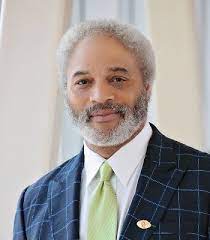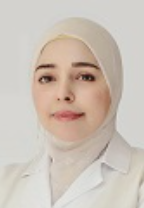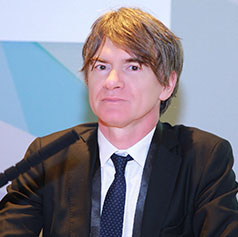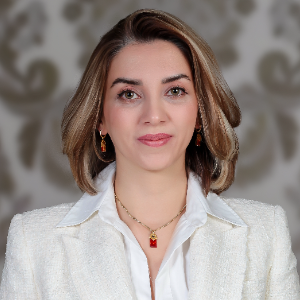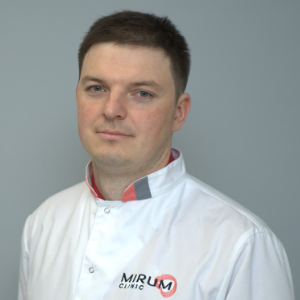About Conference
4th World Congress on Cardiac Surgery and Medical Devices
December 8–9, 2025 | Rome, Italy
Conference Series LLC Ltd proudly invites all participants, researchers, academicians, industry professionals, and sponsors from around the globe to attend the 4th World Congress on Cardiac Surgery and Medical Devices, scheduled to be held on December 8–9, 2025, in Rome, Italy.
With the central theme “Innovations Shaping the Future: Advancing Cardiac Surgery and Smart Medical Devices,” this international event aims to bring together leading cardiologists, cardiac surgeons, biomedical engineers, healthcare professionals, and students to share cutting-edge knowledge, explore emerging technologies, and foster collaboration in the evolving field of cardiovascular care.
Cardiac Surgery 2025 will feature a dynamic program with keynote lectures, scientific sessions, hands-on workshops, poster presentations, and panel discussions. Topics will range from minimally invasive surgical techniques and robotic interventions to advancements in cardiovascular imaging, device development, and post-operative care.
This global forum is designed to promote interaction among clinicians, researchers, and device manufacturers, enhancing understanding of current challenges and breakthroughs in predicting, preventing, and treating heart diseases. Participants will gain valuable insights into the latest trends in interventional cardiology, medical device regulation, and patient-oriented approaches to cardiovascular health.
Conference Series LLC Ltd organizes 1000+ global conferences annually across the USA, Europe, and Asia with support from over 1000 scientific societies, and publishes 900+ open access journals featuring more than 60,000 distinguished scientists and professionals on editorial boards.
Join us in Rome to be part of this premier event shaping the future of cardiac surgery and medical technology.
Benefits of Attending
Attending the 4th World Congress on Cardiac Surgery and Medical Devices offers a unique opportunity to engage with global leaders in cardiac care and innovation. This prestigious event provides a multidisciplinary platform for cardiac surgeons, cardiologists, biomedical engineers, researchers, and healthcare professionals to exchange knowledge, discuss the latest clinical practices, and explore revolutionary advancements in cardiac surgery and device development.
Whether you're aiming to:
-
Discover cutting-edge technologies such as robotic surgery, AI in cardiac imaging, and next-gen medical devices
-
Present your research and gain recognition among international peers
-
Network with global experts, innovators, and decision-makers
-
Stay current with evolving standards, regulations, and best practices in cardiac care
-
Collaborate on new research or business ventures in the cardiovascular field
This conference offers invaluable learning, exposure, and professional growth. Held in the historic city of Rome, it’s also a chance to experience cultural richness while advancing your career and contributing to the future of heart health.
SCOPE AND SIGNIFICANCE
The 4th World Congress on Cardiac Surgery and Medical Devices aims to cover the broad spectrum of innovations and challenges in cardiac care, focusing on surgical techniques, medical device advancements, and patient-focused therapies. The conference will explore emerging technologies such as minimally invasive and robotic surgery, cutting-edge cardiac implants, continuous monitoring systems, and AI-driven diagnostics.
This event is significant as it addresses the increasing global burden of cardiovascular diseases by fostering collaboration between clinicians, engineers, researchers, and industry leaders. By sharing the latest research, clinical practices, and technological breakthroughs, the congress helps accelerate the translation of innovations into improved patient outcomes.
Additionally, the congress serves as a platform to discuss regulatory frameworks, ethical considerations, and healthcare policies that impact the development and implementation of cardiac devices worldwide. The exchange of knowledge and expertise at this forum is vital to overcoming current limitations and shaping the future of cardiac surgery and medical device technologies globally.
JOB AND ECONOMY
The cardiac surgery and medical device sectors are rapidly expanding industries that significantly contribute to global healthcare employment and economic growth. Advances showcased at the 4th World Congress on Cardiac Surgery and Medical Devices drive demand for highly skilled professionals, including surgeons, biomedical engineers, clinical researchers, and healthcare technologists.
Innovation in cardiac devices not only improves patient outcomes but also stimulates the medical technology market, creating new jobs in research and development, manufacturing, regulatory affairs, and sales. The conference highlights opportunities for workforce development, entrepreneurial ventures, and cross-industry collaborations that bolster economic growth.
Moreover, the event supports knowledge exchange that can help streamline healthcare delivery and reduce costs associated with cardiovascular diseases, ultimately benefiting economies by improving population health and productivity.
BENEFITS OF ATTENDING
-
Gain Insight into Cutting-Edge Research: Learn about the latest innovations, surgical techniques, and emerging cardiac devices from world-renowned experts.
-
Enhance Clinical Skills: Participate in workshops and sessions that provide practical knowledge to improve patient care and surgical outcomes.
-
Networking Opportunities: Connect with leading cardiologists, surgeons, researchers, industry professionals, and policymakers from around the world.
-
Collaborate and Share Knowledge: Exchange ideas, discuss challenges, and form partnerships for future research and clinical projects.
-
Explore Market Trends: Understand the evolving landscape of the cardiac device industry and identify business and investment opportunities.
-
Access to Multidisciplinary Perspectives: Gain a comprehensive view of cardiac care, from paediatrics to cardio-oncology, across clinical and technological domains.
-
Continuing Education and Certification: Earn professional development credits and certifications that contribute to career advancement.
TARGET AUDIENCE
-
Cardiac Surgeons
-
Cardiologists
-
Cardiovascular Researchers and Scientists
-
Biomedical Engineers and Medical Device Developers
-
Healthcare Professionals and Nurses specializing in Cardiology
-
Medical Technologists and Technicians
-
Pharmaceutical and Biotechnology Experts
-
Academicians and Students in Medical and Biomedical Fields
-
Regulatory Authorities and Policy Makers
-
Hospital Administrators and Healthcare Consultants
-
Industry Professionals, Business Delegates, and Investors in Cardiac Device
Sessions and Tracks
Track 1: Advanced Cardiac Electrophysiology – Innovations in Diagnosis and Treatment
Advanced cardiac electrophysiology focuses on diagnosing and treating heart electrical system disorders, including arrhythmias like atrial fibrillation and ventricular tachycardia, using sophisticated invasive procedures such as intracardiac catheter recordings and programmed electrical stimulation (PES). Minimally invasive catheter-based therapies, including radiofrequency ablation and cryoablation, have revolutionized treatment by selectively destroying abnormal tissue and reducing the need for open-heart surgery. Future directions involve real-time 3D mapping, AI integration for predicting arrhythmias and personalizing therapy, remote robotic catheter navigation, and bioelectronic implants to enhance precision and safety, aiming toward personalized, less invasive, and more effective treatment strategies.
Track 2: Clinical Cardiology – Expanding Non-Surgical Therapeutics and Personalized Care
Clinical cardiology centres on comprehensive medical management of cardiovascular diseases through non-surgical interventions, emphasizing precision medicine to tailor treatments based on genetic, biomarker, and phenotypic data. Evolving percutaneous coronary interventions (PCI) like angioplasty and stenting, regenerative therapies using cardiac progenitor cells and novel pharmacological agents such as targeted anticoagulants and lipid-lowering drugs improve patient outcomes. Integration of digital health technologies, wearable sensors, remote monitoring, and AI-driven diagnostics supports proactive, continuous cardiovascular care aimed at early detection, personalized treatment adjustments, and preventing disease progression to optimize quality of life.
Track 3: Cardiovascular Disease and Nutrition – Lifestyle Modifications as a Preventive Paradigm
Nutrition and lifestyle are foundational to preventing cardiovascular disease, with evidence supporting holistic dietary patterns like the Mediterranean diet that reduce inflammation, improve lipid profiles, and lower blood pressure. Lifestyle modifications including physical activity, stress management, and smoking cessation complement dietary strategies. Personalized nutrition based on genetic and metabolic profiles (nutrigenomics) and future digital health tools like mobile applications will promote sustained behavioural changes. Public health policies addressing healthy environments and socioeconomic barriers are also crucial in combating the global cardiovascular disease epidemic.
Track 4: Women’s Cardiovascular Health – Bridging Knowledge Gaps and Tailoring Interventions
Women’s cardiovascular health addresses historical gaps in research and care that have been male-centric by focusing on sex-specific risk factors such as hormonal influences, pregnancy-related conditions, and autoimmune diseases. Atypical symptom presentations in women necessitate increased awareness and specialized screening protocols considering hormonal and reproductive history. Future efforts aim to develop personalized therapies that reduce outcome disparities and enhance clinical trial participation among women, thereby improving cardiovascular outcomes and quality of life globally.
Track 5: Cardio-Oncology – Addressing Cardiovascular Complications of Cancer Therapies
Cardio-oncology is dedicated to monitoring and managing cardiotoxic effects of cancer treatments including chemotherapy, radiotherapy, and targeted therapies. Advanced imaging techniques like 3D echocardiography and biomarkers such as natriuretic peptides and troponins enable early detection of cardiac dysfunction. Future advancements will focus on cardio-protective interventions administered alongside cancer therapy, multidisciplinary care models integrating oncologists and cardiologists, and precision medicine to identify high-risk patients for tailored prevention and treatment strategies, ultimately improving long-term cardiac health in cancer survivors.
Track 6: Nuclear Cardiology – Enhancing Non-Invasive Cardiac Imaging
Nuclear cardiology continues to advance non-invasive evaluation of myocardial perfusion, ventricular function, and ischemic injury. Although current techniques like myocardial perfusion imaging and radioactive ventriculography are widely used, limitations such as lengthy scan times and low spatial/temporal resolution remain. Future innovations are trending toward hybrid imaging modalities (PET/CT, PET/MRI), faster protocols, and improved quantification of ventricular volumes and mass, facilitating earlier diagnosis and more precise risk stratification.
Track 7: Pediatric Cardiology – Tackling Emerging Cardiac Challenges in the Young
Pediatric cardiology focuses on diagnosing and treating congenital and acquired heart conditions in infants, children, and adolescents. As medical technology advances, early detection of heart defects through prenatal screening and neonatal diagnostics has become more effective. However, new challenges are emerging, including rising cases of childhood obesity, hypertension, and lifestyle-induced cardiac issues. Pediatric cardiologists now face a growing need to manage both congenital heart diseases and preventable cardiovascular conditions linked to modern living. Innovative interventions such as minimally invasive procedures, improved imaging techniques, and personalized treatment plans are transforming care outcomes. Additionally, long-term monitoring of pediatric patients into adulthood is critical, ensuring continuity of care. This field remains vital in safeguarding the heart health of future generations.
Track 8: Cardiac Nursing – Expanding Roles in Advanced Cardiovascular Care
Cardiac nursing has evolved significantly, with nurses playing increasingly critical roles in advanced cardiovascular care. Beyond traditional bedside responsibilities, cardiac nurses now contribute to complex procedures such as cardiac catheterizations, electrophysiology studies, and post-operative care in intensive settings. They are instrumental in managing chronic heart conditions, educating patients on lifestyle changes, and supporting rehabilitation programs. With the rise in heart disease prevalence, cardiac nurses are also stepping into leadership roles in preventive care and clinical research. Advanced practice nurses, including nurse practitioners and clinical nurse specialists, are leading care coordination, diagnostics, and even prescribing medications. This expansion not only enhances patient outcomes but also strengthens interdisciplinary collaboration in cardiology, making cardiac nursing an indispensable part of modern cardiovascular health systems.
Track 9: Cardiac Surgery – Innovations in Surgical Techniques and Patient Outcomes
Cardiac surgery continues to be vital in treating complex heart conditions such as congenital defects, valvular abnormalities, ischemic heart disease, and advanced heart failure. The field is rapidly evolving, with a strong focus on minimally invasive and robotic-assisted surgical techniques that reduce recovery times and improve patient outcomes. Enhanced perioperative care and precision-based patient selection are improving success rates and safety. Innovations in tissue engineering, including bioengineered valves and grafts, are paving the way for regenerative solutions. Advances in heart transplantation, such as organ preservation and immunosuppression strategies, are extending survival rates. Additionally, the integration of artificial intelligence in surgical planning, risk stratification, and post-operative monitoring promises a more personalized and efficient approach to cardiac surgical care.
Track 10: Diabetic Cardiomyopathy – Addressing a Growing Cardiometabolic Challenge
The rising global incidence of diabetes and obesity has significantly contributed to the increased prevalence of diabetic cardiomyopathy—a distinct form of heart disease marked by myocardial fibrosis, structural remodeling, and progressive cardiac dysfunction, independent of hypertension or coronary artery disease. Unlike traditional cardiovascular complications, diabetic cardiomyopathy presents unique pathophysiological challenges, including altered glucose metabolism, oxidative stress, and chronic low-grade inflammation. Current research is emphasizing the identification of early biomarkers and advanced imaging techniques, such as cardiac MRI and speckle-tracking echocardiography, to enable timely diagnosis before irreversible damage occurs. Future therapeutic strategies are focused on precision-targeted approaches, including metabolic modulation, anti-fibrotic agents, and gene-based therapies to halt or reverse myocardial injury. Moreover, integrated care models that combine glycemic control, lifestyle modification, and cardiovascular monitoring are essential in reducing the burden of heart failure among diabetic individuals. Addressing diabetic cardiomyopathy is crucial for improving long-term outcomes in this high-risk population.
Track 11: Gynaecologic and Obstetric Emergencies – Advances in Early Diagnosis and Conservative Management
Emerging trends in gynaecologic and obstetric emergencies focus on enhancing the speed and accuracy of diagnosis to enable timely interventions. Advances in high-resolution sonography and rapid biochemical testing are transforming the early detection of conditions such as ectopic pregnancy, placental abruption, and preeclampsia. These tools facilitate more conservative, fertility-preserving treatments and reduce the need for invasive procedures. The introduction of targeted antibiotic therapies and minimally invasive surgical techniques, such as laparoscopy, is further contributing to lower morbidity and mortality rates. Looking ahead, the integration of artificial intelligence in diagnostic platforms holds promise for streamlining clinical decision-making, particularly in acute settings. AI algorithms can assist in interpreting imaging and predicting complications, enhancing clinical efficiency. Additionally, expanding multidisciplinary care teams, including emergency physicians, obstetricians, radiologists, and critical care specialists—is a key to improving outcomes, especially in under-resourced environments where rapid, coordinated response can make a critical difference in maternal and fetal health.
Track 12: Endocrine and Neurological Emergencies – Bridging Multisystem Complexity
Endocrine emergencies with neurological involvement are gaining attention due to their complex presentation and need for swift diagnosis. Current trends focus on improved biomarkers and neuroimaging techniques to distinguish endocrine-related neurologic symptoms rapidly. Future innovations aim at multidisciplinary protocols combining endocrinology and neurology expertise to manage these conditions more effectively, leveraging precision medicine and real-time monitoring technologies.
Track 13: Current Research in Cardiology – Transforming Interventional Techniques
Ongoing research in cardiology is revolutionizing interventional approaches, offering safer, more effective treatments for a wide range of cardiovascular conditions. Advances in catheter-based procedures, such as transcatheter aortic valve replacement (TAVR) and percutaneous coronary interventions (PCI), are minimizing the need for open-heart surgery, reducing recovery times, and improving patient outcomes. Novel drug-eluting stents, biodegradable scaffolds, and intracoronary imaging techniques like optical coherence tomography (OCT) and intravascular ultrasound (IVUS) are enhancing procedural precision and long-term efficacy. Research is also exploring the use of robotics and AI-guided navigation to improve the accuracy and consistency of complex interventions. Additionally, innovations in structural heart disease treatments, such as percutaneous mitral and tricuspid valve repair, are expanding the scope of interventional cardiology. These transformative developments are not only advancing the standard of care but also making personalized, minimally invasive treatments increasingly accessible to patients worldwide.
Track 14: Heart Diagnosis – Enhancing Early Detection and Risk Stratification
Heart disease continues to be a leading cause of death globally, necessitating continual advancements in diagnostic strategies. Breakthroughs in technology have significantly enhanced the ability to detect cardiovascular conditions at earlier stages. High-sensitivity cardiac biomarkers now allow for more accurate and timely diagnosis of myocardial injury, while advanced imaging modalities such as 3D echocardiography and cardiac MRI offer detailed structural and functional assessment. Wearable cardiac monitors have revolutionized arrhythmia detection, enabling continuous, real-time tracking of heart rhythms in daily life. Looking ahead, the integration of artificial intelligence is set to transform cardiovascular diagnostics through predictive analytics, personalized risk profiling, and automated image interpretation. AI-powered remote monitoring systems can identify early warning signs, guide timely interventions, and support individualized care plans. These innovations collectively represent a shift toward more proactive, precise, and patient-oriented approaches in the management and prevention of heart disease.
Track 15: Case Reports in Cardiology – Driving Education and Innovation
Case reports remain a cornerstone of medical education in cardiology, offering valuable insights into rare conditions, unusual presentations, and innovative management strategies. They provide a platform for clinicians to share real-world experiences that can inform practice and inspire further research. Current trends emphasize the use of interactive digital platforms, multimedia formats, and open-access journals to broaden accessibility and engagement. Mentorship programs are also gaining traction, encouraging junior clinicians and early-career researchers to participate in case development, critical thinking, and peer review. Looking ahead, the integration of global data-sharing networks and AI-driven analysis will transform how case reports are compiled and interpreted. These tools can identify patterns across thousands of cases, accelerating diagnostic accuracy, guiding treatment innovations, and supporting evidence-based decision-making. By combining narrative learning with advanced analytics, case reports are evolving into dynamic instruments for knowledge exchange and clinical advancement in cardiology.
Track 16: Cardiopulmonary Rehabilitation and Prevention – Integrative, Patient-focussed Care
Cardiac rehabilitation is evolving to incorporate holistic lifestyle modifications, including exercise, nutrition, stress management, and psychological support. Telehealth and remote monitoring are expanding access and adherence, especially post-COVID-19. Future trends include precision rehabilitation plans tailored via genetic and phenotypic profiling, augmented reality (AR)-based exercise coaching, and integration of behavioral economics to enhance patient engagement.
Track 17: Stem Cell Research and Cardiac Regeneration – Pioneering Heart Repair
Stem cell therapies and regenerative medicine represent one of the most promising avenues in the treatment of cardiac diseases, particularly in cases where myocardial tissue has been irreversibly damaged, such as in ischemic cardiomyopathy and acute coronary syndromes. Research continues to explore a variety of stem cell sources, including bone marrow-derived mesenchymal stem cells, endothelial progenitor cells, induced pluripotent stem cells, and resident cardiac stem cells. These cell types have demonstrated the potential to stimulate angiogenesis, reduce fibrosis, and partially regenerate myocardium through paracrine signaling and direct differentiation.
Current investigations focus on overcoming key challenges such as optimizing cell delivery methods (e.g., intracoronary, intramyocardial, or systemic routes), improving engraftment and survival of transplanted cells in the hostile post-infarct environment, and minimizing immune rejection. A promising shift is emerging toward cell-free therapies—especially the use of extracellular vesicles like exosomes, which carry bioactive molecules that mimic the beneficial effects of stem cells without the associated risks.
In the near future, combining regenerative therapies with advanced biomaterials, gene editing, and real-time imaging may significantly enhance cardiac tissue repair. These approaches could transform the clinical management of heart disease, shifting from symptomatic treatment to true myocardial regeneration.
Track 18: Robotic Cardiac Surgery – Minimally Invasive Precision
Robotic cardiac surgery is revolutionizing the field of cardiothoracic surgery by offering highly precise, minimally invasive alternatives to traditional open-heart procedures. Utilizing robotic arms controlled by skilled surgeons, this technology allows for smaller incisions, less trauma to surrounding tissues, reduced blood loss, and faster recovery times—ultimately leading to improved patient outcomes and shorter hospital stays. Robotic systems are currently employed in a range of procedures including coronary artery bypass grafting (CABG), mitral and aortic valve repair or replacement, and correction of arrhythmias such as atrial fibrillation.
As the technology advances, future developments aim to enhance robotic dexterity with greater range of motion and tactile feedback, improving surgical precision even further. Integration of artificial intelligence and real-time imaging will enable intraoperative decision-making support, personalized adjustments, and predictive analytics to optimize outcomes. Additionally, ongoing research is expanding the application of robotic surgery to more complex cardiac interventions, such as multiple valve repairs or reoperative cases, while maintaining high safety standards. As accessibility and training improve, robotic cardiac surgery is set to become a mainstay in cardiovascular care, combining innovation with surgical excellence for better patient-oriented outcomes.
Featured Conferences & Collaborative Networks:
Cardiac Surgery 2024 | Global Cardiology Forums | Cardio-Oncology & Nuclear Cardiology Symposiums | Cardiovascular Pharmacology Workshops | Advanced Cardiac Nursing Conferences | Cardiology Conferences | Cardio Summit | Cardiac Surgery Meetings | Cardiovascular Pharmacology | Cardio-Oncology and Nuclear Cardiology | Cardiac Nursing: Acute and Chronic Care
Key Professional Societies:
American College of Cardiology | American Society of Echocardiography | European Society of Cardiology | National Heart Foundation of Australia | National Heart, Lung, and Blood Institute | Society for Vascular Surgery | Women’s Heart Foundation | World Heart Federation
